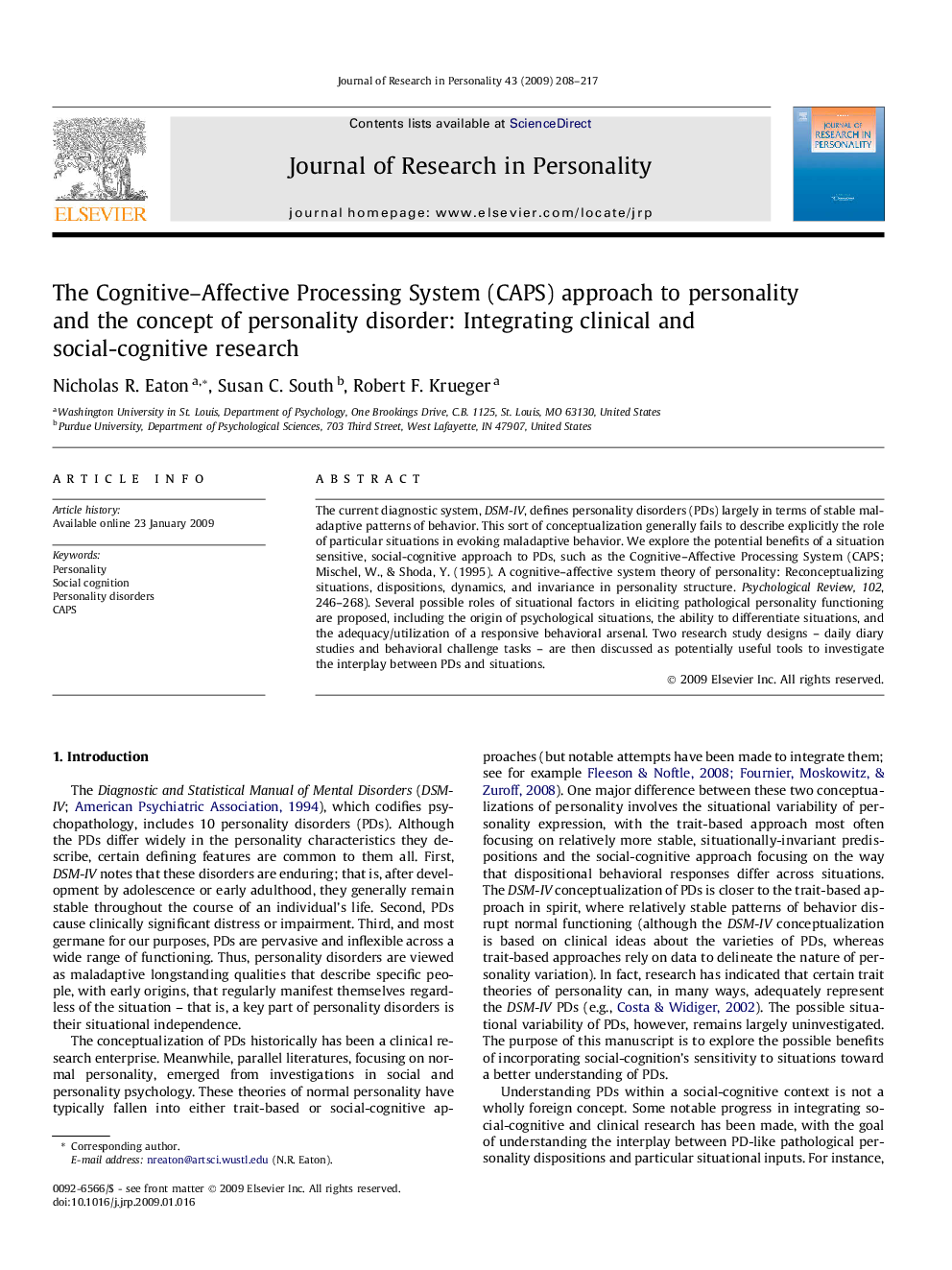| Article ID | Journal | Published Year | Pages | File Type |
|---|---|---|---|---|
| 951643 | Journal of Research in Personality | 2009 | 10 Pages |
The current diagnostic system, DSM-IV, defines personality disorders (PDs) largely in terms of stable maladaptive patterns of behavior. This sort of conceptualization generally fails to describe explicitly the role of particular situations in evoking maladaptive behavior. We explore the potential benefits of a situation sensitive, social-cognitive approach to PDs, such as the Cognitive–Affective Processing System (CAPS; Mischel, W., & Shoda, Y. (1995). A cognitive–affective system theory of personality: Reconceptualizing situations, dispositions, dynamics, and invariance in personality structure. Psychological Review, 102, 246–268). Several possible roles of situational factors in eliciting pathological personality functioning are proposed, including the origin of psychological situations, the ability to differentiate situations, and the adequacy/utilization of a responsive behavioral arsenal. Two research study designs – daily diary studies and behavioral challenge tasks – are then discussed as potentially useful tools to investigate the interplay between PDs and situations.
